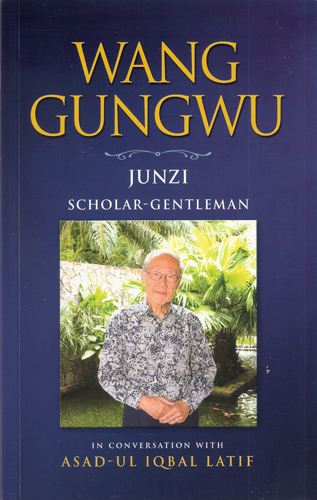This new book is now available in all the usual bookshops at around RM80 to RM100.

This book of interviews with Professor Wang Gungwu, published to felicitate him on his 80th birthday in 2010, seeks to convey to a general audience something of the life, times and thoughts of a leading historian, Southeast Asianist, Sinologist and public intellectual. The interviews flesh out Professor Wang’s views on being Chinese in Malaya (he grew up in Ipoh); his experience of living and working in Malaysia, Singapore and Australia; the Vietnam war; Hong Kong and its return to China; the rise of China; Taiwan’s, Japan’s and India’s place in the emerging scheme of things; and the United States in an age of terrorism and war. The book includes and interview with his wife, Mrs. Margaret Wang, on their life together for half a century. Two interviews by scholars on Professor Wang’s work are also included, as are his curriculum vitae and a select bibliography of his works.
What comes across in this book is how Professor Wang was buffeted by feral times and hostile worlds, but responded to them as a left-liberal humanist who refused to cut ideological corners. This book records his response to tumultuous times on hindsight, but with a keen sense of having lived through the times of which he speaks.
NOTE: For those not skilled in Chinese, Junzi was a term used by Confucious to describe his ideal human. To Confucius, the functions of government and social stratification were facts of life to be sustained by ethical values; thus his ideal human was the junzi. Often translated as “gentleman” or “superior person” and sometimes “exemplary person”.
NOTE 2: Wang Gungwu was an Anderson School student before and for a while after, the Japanese Occupation.

